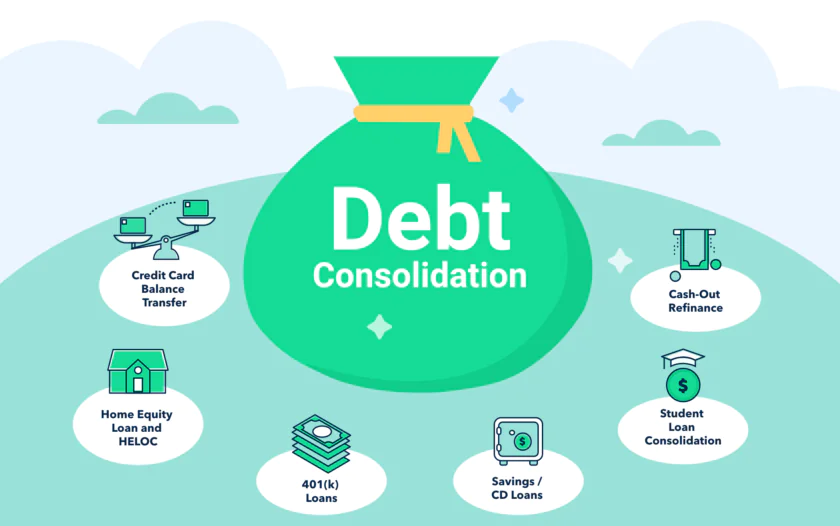Starting a business from the ground up is an exciting and challenging journey. One of the most significant hurdles many entrepreneurs face is securing financing to launch their ideas. While having personal savings or collateral is typically a key factor for getting a loan, what if you don’t have any money to your name? Can you still get a startup business loan without any personal funds? The answer is yes, it’s possible. This guide will walk you through how to obtain a business loan even if you don’t have any money to put up as collateral.
1. Understand the Different Types of Loans Available
Before you begin applying for a loan, it’s crucial to understand the different types of financing options available. Each loan type has its own requirements, interest rates, and terms. Knowing your options can help you choose the one that fits your business needs.
Traditional Business Loans
Traditional business loans are offered by banks and credit unions, but they typically require collateral, a solid credit history, and business revenue. If you don’t have personal assets to put up as collateral, securing this type of loan can be difficult.
Small Business Administration (SBA) Loans
The SBA offers government-backed loans to small businesses, and they are a popular option for entrepreneurs with limited funds. These loans have lower interest rates and longer repayment terms, but they still require a strong business plan and a proven track record of business activity. SBA loans may be easier to obtain than traditional loans, but they still require some form of collateral.
Business Line of Credit
A business line of credit is a flexible borrowing option that works similarly to a credit card. You can borrow and repay funds as needed, up to your credit limit. Some lenders offer unsecured lines of credit, meaning no collateral is required, but your creditworthiness will be a key factor in getting approved.
Microloans
If you’re a small business with minimal funding needs, microloans may be a good option. These loans typically provide amounts of $50,000 or less and are often offered by nonprofit organizations. Microloans can be easier to obtain than larger loans because they focus more on your business concept and potential rather than financial history.
Peer-to-Peer (P2P) Lending
Peer-to-peer lending platforms connect borrowers with individual investors who are willing to fund their ventures. These platforms often do not require collateral, though they will assess your creditworthiness and business plan to determine your eligibility.
Crowdfunding
Although not technically a loan, crowdfunding allows you to raise money from a large number of people online. Platforms like Kickstarter, Indiegogo, and GoFundMe enable you to present your business idea to potential investors. If you offer rewards or equity in return, crowdfunding can provide the financial boost you need without having to go through traditional lending institutions.
2. Build a Strong Business Plan
Whether you have money or not, a solid business plan is crucial to obtaining financing. Lenders want to know that your business idea is well-thought-out and has a high chance of success. A business plan will serve as your roadmap, outlining your business goals, target market, and financial projections.
Here are some key components your business plan should include:
- Executive Summary: An overview of your business idea, goals, and vision.
- Business Description: A detailed description of the products or services you plan to offer.
- Market Research: Evidence of demand for your product or service in the market, including a target audience and competitor analysis.
- Marketing and Sales Strategy: How you plan to attract and retain customers.
- Financial Projections: Estimated costs, revenue, and cash flow for the first few years of operation.
- Repayment Plan: How you plan to repay any loans or debts.
A comprehensive business plan shows lenders that you’ve done your homework and that your business is worth investing in.
3. Improve Your Creditworthiness
Even if you don’t have money to offer, your creditworthiness plays a huge role in securing a loan. Lenders look at your credit score to determine whether you can repay the loan. A higher credit score increases your chances of getting approved, and it can also help you secure better loan terms.
If your credit score is low, take steps to improve it before applying for a loan. Pay down outstanding debt, make all payments on time, and avoid applying for too many loans or credit cards. It may take a few months, but improving your credit score will pay off in the long run.
4. Seek Out Alternative Funding Sources
While traditional loans are one option, alternative financing sources may be more accessible if you have limited funds. These options include:
Grants
Government and private organizations offer grants to small businesses, especially those that promote innovation, education, or community development. Grants are essentially free money, so they don’t require repayment, but competition is fierce, and the application process can be lengthy.
Angel Investors
Angel investors are wealthy individuals who invest in startups in exchange for equity ownership. To attract angel investors, you need to have a compelling business plan and a clear strategy for growth. While angel investors provide funding, they will typically want some control or a say in how your business is run.
Venture Capital
Venture capital (VC) firms invest large sums of money in exchange for equity in high-potential startups. These investors are generally interested in businesses with high-growth potential and may require you to give up a portion of your company. While venture capital can provide significant funding, it’s highly competitive, and not every business qualifies for this type of funding.
Friends and Family
If you have close friends or family members who believe in your business, they may be willing to lend you money or invest in your startup. Be careful, though—financial transactions with loved ones can strain relationships if things don’t go as planned.
5. Demonstrate the Potential of Your Business
Lenders and investors are looking for businesses with growth potential. If you don’t have any money or assets, you need to focus on demonstrating that your business idea has the potential to be profitable. This can be done by providing market research, showing proof of demand, and showcasing any early traction or positive feedback you’ve received. The more you can show that your business is a sound investment, the better your chances of securing financing.
6. Consider an Unsecured Loan
While most lenders will want some form of collateral to secure a loan, there are unsecured loans available. These loans do not require personal assets or money upfront, but they typically come with higher interest rates due to the increased risk for the lender. Unsecured loans are often offered by online lenders and peer-to-peer lending platforms.
Conclusion
Getting a startup business loan with no money is possible, but it requires careful planning and a clear strategy. Focus on building a solid business plan, improving your creditworthiness, and exploring alternative funding sources. With determination and the right approach, you can secure the financing you need to launch and grow your business.
FAQs
1. Can I get a business loan with no collateral? Yes, there are unsecured loans and alternative financing options like peer-to-peer lending or crowdfunding that don’t require collateral. However, they often come with higher interest rates or stricter eligibility requirements.
2. How can I improve my credit score to get a loan? To improve your credit score, pay off existing debts, make payments on time, avoid applying for too many loans or credit cards, and check your credit report for errors.
3. What is the easiest way to get a business loan without personal funds? Exploring microloans, crowdfunding, or peer-to-peer lending can be easier options if you have no personal funds. These avenues often focus more on your business idea and potential rather than your financial history.
4. How long does it take to get a business loan? The time it takes to secure a business loan varies depending on the lender and type of loan. Traditional loans may take several weeks or months, while alternative options like peer-to-peer lending can take just a few days to a week.




